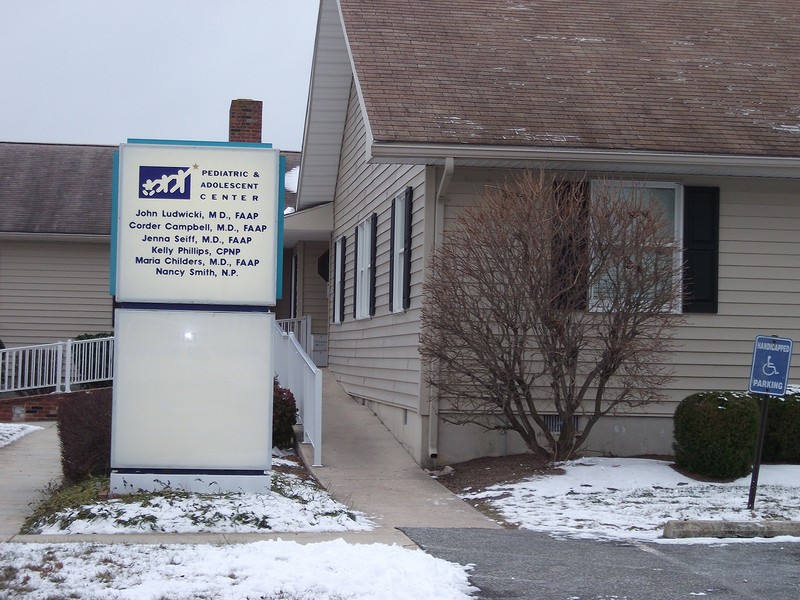Delaware is seeing a rise in cases of norovirus, causing health officials to caution residents to prevent the illness.
Symptoms of norovirus include severe stomach discomfort, including diarrhea, nausea, vomiting, stomach cramping. Some people get a fever, chills, muscle aches or a sense of tiredness.
Paula Eggers, infectious disease epidemiologist with the Division of Public Health said while physicians report cases, most people don't go to the doctor, so they aren't tested for the virus. One of the strains affecting residents was newly discovered in Australia in 2012.
Symptoms can begin suddenly and an infected person may go from feeling well to very sick in a short period of time, Eggers said.
Pediatric Nurse Practioner Kelly Phillips of The Pediatric and Adolescent Center in Milton said many patients are getting sick quickly with the stomach virus.
Division of Public Health officials track norovirus in long-term care facilities, confirming nine norovirus clusters spread across all three counties. Other clusters may be confirmed soon, Eggers said.
Residents of long-term care are tested for norovirus and, if confirmed, precautions are taken to prevent spread, such as canceling group activities and communal dining, disinfection and increased hand-washing, Eggers said. In most cases, visitors are asked to wait until the sickness is gone before visiting loved ones.
Pediatric offices also report patients are calling and seeing their doctors because of norovirus, said Phillips.
"This year we started with a bad flu season, and now we have both flu and norovirus," Phillips said. "We have been seeing and hearing reports of norovirus since before Christmas."
Despite the increase in reports of norovirus, Phillips said respiratory issues still outweigh the stomach virus.
"Healthy people can ride out norovirus pretty well; it's young children and older adults that could have problems," she said.
Most patients complain of vomiting and diarrhea. Phillips recommends a clear liquid diet until at least five hours have passed since the last vomiting episode. Once vomiting has stopped, Phillips said a regular, but perhaps more bland, diet can be resumed.
She suggested parents keep children home if they have an upset stomach, vomiting or diarrhea because norovirus is extremely contagious. Hand-washing is key to prevention, but Phillips also urges parents to wash fruits and vegetables, because in most cases, norovirus is a food-borne illness.
"In some cases, the vomiting will end, but diarrhea continues. I tell parents to keep feeding children even if they have diarrhea, and to make sure the kids are getting enough water because dehydration can be a real problem," Phillips said.
She suggested giving small children a teaspoon of water every 15 minutes or so when they are vomiting often to make sure they don't get dehydrated.
"In many cases, people feel fine one day and are sick the next," Phillips said of the quickly moving virus. "Most parents can tell when something is wrong with their child because the child is not playing as much or eating as much. In many cases parents can see it in the child's eyes. In these cases it is prudent to keep them home."
Norovirus is accompanied by a noisy stomach, while other stomach issues like appendicitis exhibit a quiet stomach, Phillips said.
"Unlike other illnesses, you can get norovirus more than once," Phillips said. "Anyone with a fever longer than 48 hours or severe stomach pain should see a doctor."
According to the Centers for Disease Control and Prevention, norovirus cases have spiked regularly since 2007. Reports show higher numbers of cases in 2007, 2009 and 2010, with a smaller increase in 2008.
"Norovirus is the leading cause of illness from contaminated food in the United States. About 50 percent of all outbreaks of food-related illness are caused by norovirus," reports the CDC.
Leafy greens, fresh fruits and shellfish such as oysters are often the carriers of norovirus, but contaminated surfaces can also cause an outbreak. Norovirus is very contagious, so residents with symptoms should stay home from work and school to prevent spreading the virus.
While most people survive norovirus, the CDC reports the virus kills 800 people a year out of the 21 million people infected.
States are not required to report cases of norovirus to the CDC monitoring service, so exact numbers of those infected cannot be determined.
The Delaware Division of Public Health says a number of suspected and confirmed norovirus cases have been recorded in Delaware.
The illness usually lasts for one to two days, but remnants of the virus can continue longer.
Infection can be more severe in young children and elderly people. It is important to stay hydrated, and see a doctor if symptoms get worse. There are no medications to treat norovirus.
To prevent infection:
• Disinfect surfaces with freshly prepared and diluted bleach solution of 1 part bleach, 10 parts water or a bleach-based household cleaner
• If ill, do not go to school or work; do not send children to daycare if sick
• Do not visit elderly relatives if sick
• Wash hands frequently with soap and water
For more information about norovirus, go to: dhss.delaware.gov/dhss/dph/files/norwalkfaq.pdf.





















































